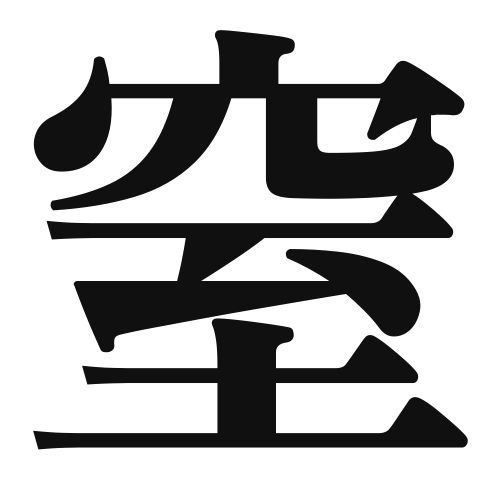1. Overview of Meaning
The kanji “窒” (chitsu) generally means “to block” or “to obstruct.” It is often used in contexts related to suffocation or confinement, indicating a lack of air or space.
2. Formation and Radical
Formation of the Kanji: The kanji “窒” is a phonetic compound (形声文字) that combines the radical for “house” (宀) and the phonetic component “質” (shitsu), which relates to quality or substance.
Radical: The radical of “窒” is 宀, which signifies “roof” or “house,” indicating that the meaning is related to something enclosed or contained.
3. Examples of Usage
Common Words and Phrases:
- 窒息 (ちっそく, chissoku) – suffocation
- 窒素 (ちっそ, chisso) – nitrogen
Example Sentences in Daily Conversation:
- この部屋は窒息しそうです。 (This room feels like it could cause suffocation.)
- 窒素は空気中に多く含まれています。 (Nitrogen is abundant in the air.)
4. Synonyms and Antonyms
Similar Kanji:
- 阻 (そ, so) – to hinder or obstruct, but it is more about preventing action rather than suffocation.
Antonyms:
- 開 (かい, kai) – to open, which is the opposite of blocking or obstructing.
5. Cultural and Historical Background
Relation to Japanese Culture: The concept of “窒” is often associated with feelings of confinement or restriction, which can be seen in various aspects of Japanese literature and art.
Proverbs and Idioms: There are not many direct proverbs using “窒,” but the idea of feeling trapped or suffocated is a common theme in Japanese expressions about emotional states.
